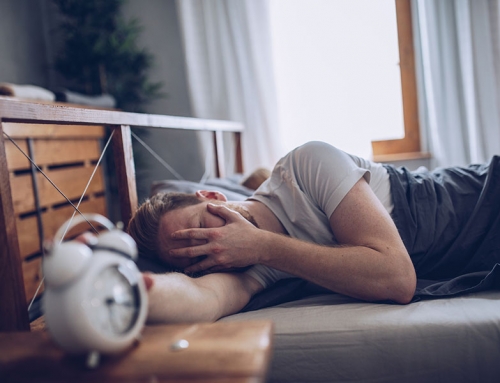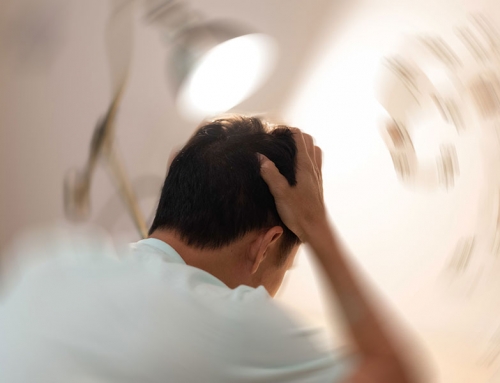Mild to moderate eye pain when waking up is more than often a symptom of a temporary and treatable condition—things caused by environmental factors such as allergens and pollutants. Beyond that, it may be time for a new pair of glasses or even a trip to a healthcare professional.
Seasonal Allergies
The most common source of eye irritation upon waking is the presence of allergens. When exposed to irritants in the air, your eyes can become itchy, red, and painful—and after several hours unattended (such as when sleeping) the eyes will begin releasing histamine. Histamine is the body’s natural defence against irritants, making your eyes swell and hurt, according to WebMD.
This can occur when people don’t wash their eyes before sleeping, leaving foreign bodies present in the eyes throughout the night. While there’s nothing inherently harmful about specs of pollen or dirt, your eye can react negatively to their presence, especially if you’re sensitive or allergic to them. Occasionally, foreign bodies can also scratch the eye.
Irritation can be also be caused by allergens in your sleeping environment. If you sleep with your window open, a pet in the room, or simply somewhere dusty, it’s possible that your eyes are being irritated due to your sleeping preferences.
Similarly, poor air quality can have the same effect as an allergen. Even if you’re not allergic to dust or pollution, you can be more sensitive to it than other people, meaning that you react while others in your household may not.
Eyestrain
Screens, books, driving, and poor light are all well-known sources of eye strain—but what’s less well known is that the onset of discomfort can take a while to begin, meaning that you may only feel straining the morning after a late-night Netflix binge.
Aching, twitching, and even sharp pains can be caused by overuse of technology, which The American Optometric Association calls Computer Vision Syndrome or Digital Eyestrain. Interestingly, the same symptoms sometimes occur after spending the previous day in the sun, without sunglasses.
If you’re experiencing these symptoms, but don’t feel you’re taking part in eye-straining activities, you might have a condition called Nocturnal Lagophthalmos. As described by Healthline, Lagophthalmos is the medical term for the inability to fully close the eyelids when sleeping due to nerve or bone damage.
If you normally wear glasses or contact lenses, consider whether it’s time for an eye test. Using the wrong prescription throughout the day can leave your eyes strained and aching during the night and into the morning. This may also be accompanied by headaches and feelings of dizziness.
Eye infection
Corneal infections can be caused by the introduction of bacteria or viruses into the eye. This might be due to rubbing the eyes, or poor hygiene—but According to Medline Plus, most people develop eye infections from leaving their contacts in overnight.
Corneal abrasion is the official name for eye scratches. Foreign bodies in the eye can cause scratches themselves, or through causing you to repeatedly rub the area. Again, contact lens use or seasonal allergies can be the source behind an abrasion.
Conjunctivitis is more commonly known as pink eye, this is when an infection causes the blood vessels in the conjunctiva to swell, turning the white parts of your eye to red. Conjunctivitis is often accompanied by itchiness and eye gunk.
Where exactly is the pain coming from?
If you do need to get in touch with a healthcare professional about eye pain or an infection, it can help to pinpoint exactly where you’re experiencing discomfort. Here’s a breakdown of the main components of the eye that could contain the source of the issue, courtesy of WebMD:
Conjunctiva:
The protective covering of your eyes, stretching over the whites, and the insides of the lids.
Iris:
The ring of colour around your pupil.
Cornea:
Your eyes’ lens. A clear window to capture light.
Sclera:
This the medical term of the whites of your eyes.
Nerves:
The system transferring light to the brain for processing into images.
Orbit:
The eye socket
Extraocular muscles:
The muscles responsible for moving your eyes.
So, to sum up
Mild to moderate eye pain upon waking is usually a sign of a temporary and treatable condition, caused due to environmental factors. For a majority of people, eye discomfort suggests the presence of an allergen—be it pollen, pet hair, dust, or air pollution. For others, it’s a signal that you’re spending too long driving, in front of a screen, or reading a book, perhaps with the wrong prescription.
If you can rule both of those causes out, then it could be that you’re suffering from an eye infection or abrasion—something that any pharmacist, eye doctor, or other healthcare professional will be happy to help you with.





